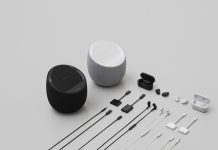
Android is getting battered by big companies claiming its infringing on patents left, right and center. We’ve seen this clearly here in Australia with the latest attack by Apple at Samsung, and Google wants it to stop.
They don’t want the patent system to cease existence, rather they want it to once again have meaning. In their latest blog post, Google’s Senior Vice Chairman and Chief Legal Officer, David Drummond, states how Google want the patent system to increase innovation in the tech industry.
“Patents were meant to encourage innovation, but lately they are being used as a weapon to stop it.”
A weapon that’s being used more and more around the tech world, which is a real shame. Microsoft and Apple are the two biggest users of this weapon, especially towards Android. They’ve purchased a combined total of over 8,000 patents which they could possibly use against Android. Let’s remember Microsoft makes more money from patent deals with Android manufacturers like HTC than it does from its own line of Windows Phone devices — a great example of how patents are currently slowing innovation. If Microsoft were innovating they’d be making software people want to use.
Apple on the other hand see Android as a huge threat. Android is about to overtake iOS as the number one Smartphone OS in Australia, and America will soon follow. For some reason Apple doesn’t want to attack Google head on — perhaps why they’re gathering all the patents they can get their hands on — so instead they’re going after Android’s major manufacturers Samsung and HTC. Classy. It’s interesting to note that Apple aren’t suing LG, even though their Android skin is an iOS look-a-like, possibly due to LG’s production of the iPhone 4 and iPod Touch’s Retina Display.
That’s where Google draws the line in the sand, and now they’re going to make sure manufacturers will continue to make Android devices and that users won’t see increased costs on Android devices. They’ve already publicly stated they’ll make sure HTC don’t lose their battle with Apple — HTC don’t have a lot of patents — and now they’re purchasing important patents to no doubt use against ‘tech bullies’ such as Microsoft and Apple when they come after Android. Google recently purchased 1,000 patents from IBM that cover CPU stuff, but not much to do with mobiles.
It’s going to be an interesting few months ahead when we’ll see exactly what happens with these lawsuits in the US and of course Australia. The Department of Justice is already looking into anti-competitive behaviour by Microsoft, Apple and others in the US where a lot of these lawsuits are happening. Google have a lot on their hands at the moment, although I think they’ll pull through.
I highly recommend you go read Google’s blog post at the source link below, it’s a very good read from their perspective.




If the deparment of justice’s investigation finds the massive anti-google buying frenzy of nortel patents to be anti-competitive then it effectively blows a 4.5 billion dollar hole in the competing consortium, destroys the firepower of the patent-swag, and hopefully warns the industry away from this stupid pursuit.
I think the leading manufacturers need to band together, samsung and htc for starters and break down the patent wall. Can a patent be made public property? Forever unowned?
NPR did a bunch of good reporting on this lately. “This American Life” two weeks ago, something on “All Things Considered”, and “Planet Money” this week. Google’s problem with patents is that they don’t own many because they didn’t start early enough. So they can’t do the usual software-business thing of patent-MAD, and that makes them vulnerable. I’m sure they’d be much happier with the current arrangements if they did in fact own a big fat portfolio. Apple/Oracle/Microsoft/IBM/whoever are a problem, but the bigger problem is the companies which don’t do anything *but* buy up vague patents then sue. Those… Read more »
should be rules that if your arent using a patent you loose it
so sue them back you dbags
Google don’t own many patents, relatively speaking. So they can’t sue. The best they could do is either defend (when they or their OEMs are sued) or try to get the USPTO to withdraw ambiguous patents.
Looks like they’re opting for a variant of the latter, but going for it in the court of public opinion.